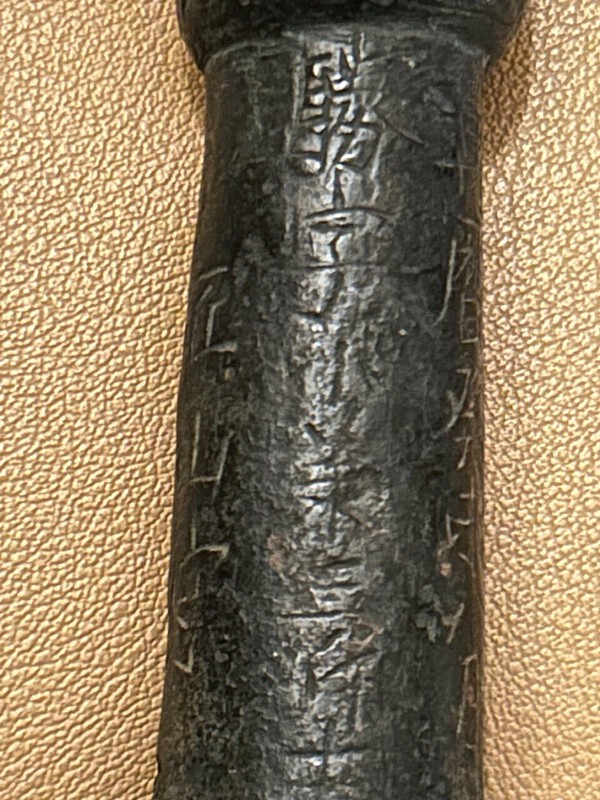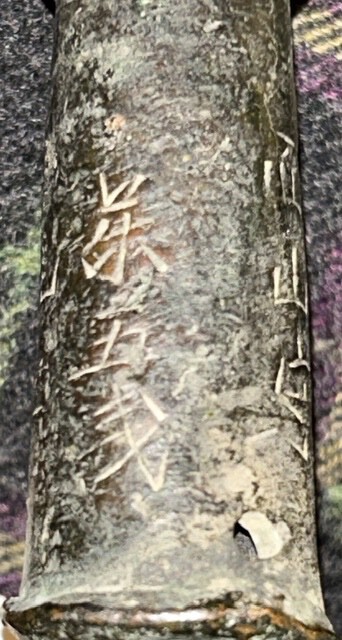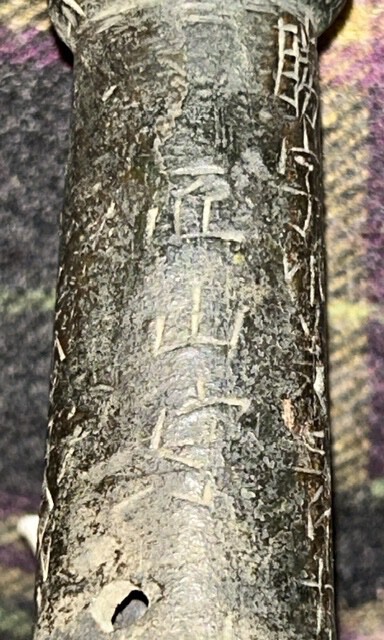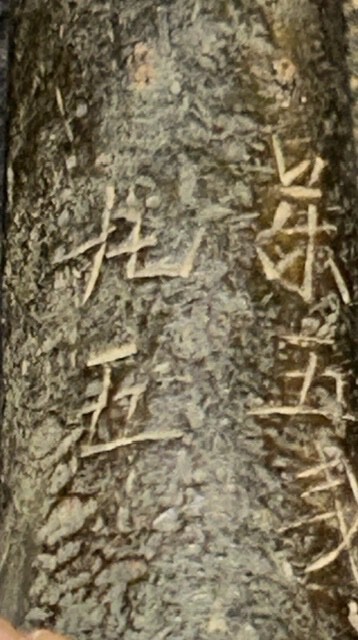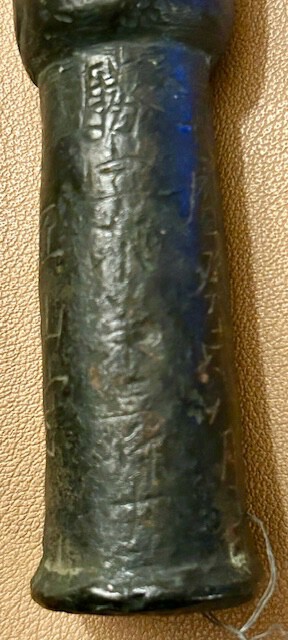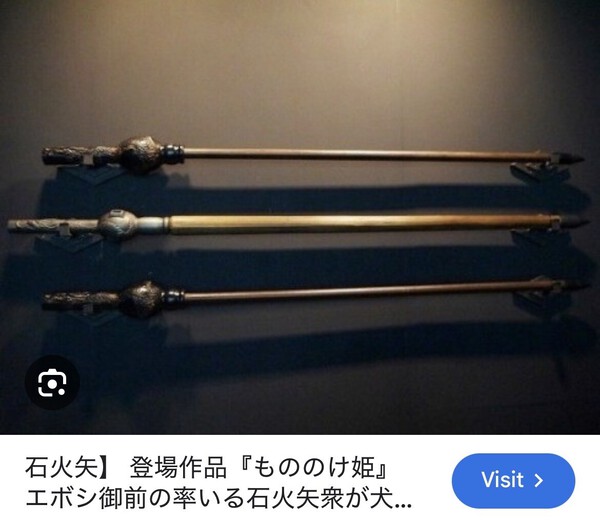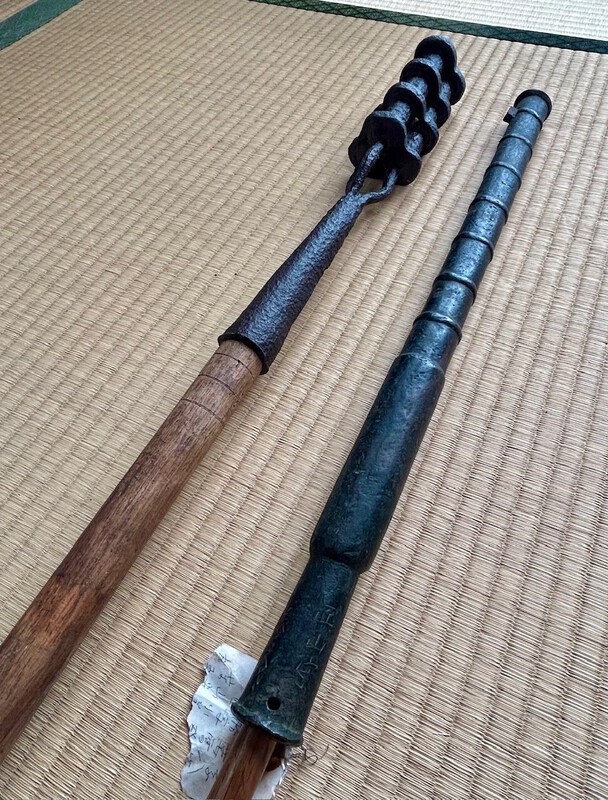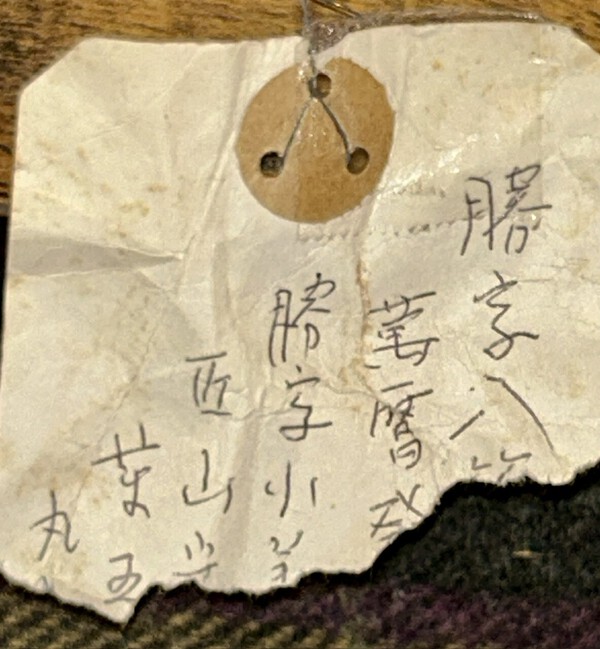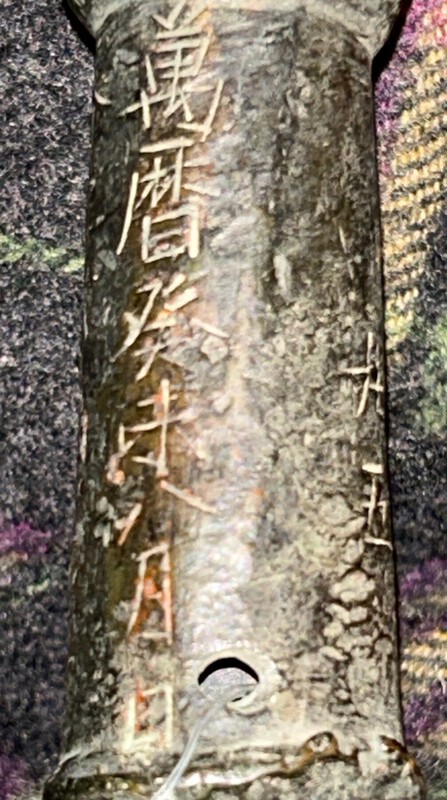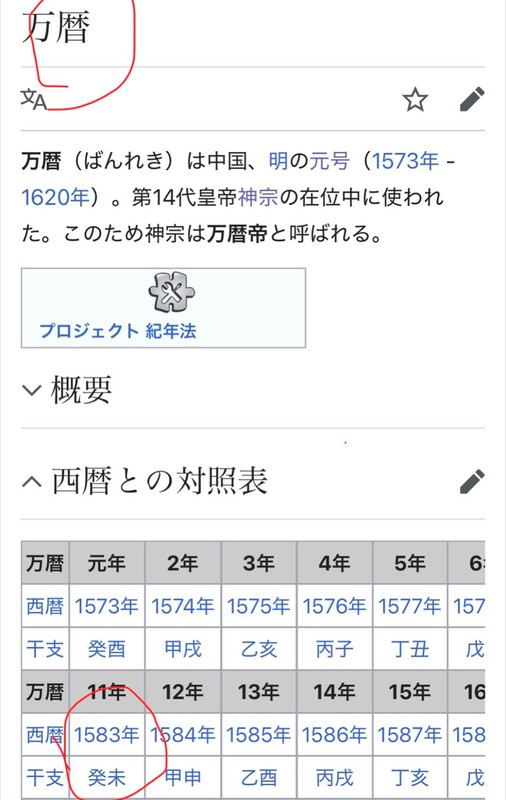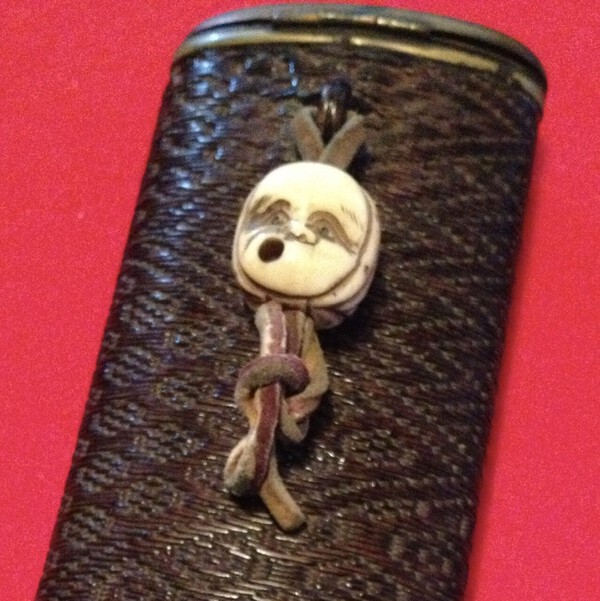-
Posts
14,391 -
Joined
-
Last visited
-
Days Won
280
Content Type
Profiles
Forums
Events
Store
Downloads
Gallery
Everything posted by Bugyotsuji
-
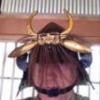
2nd Tanegashima - help again please.
Bugyotsuji replied to Alans's topic in Tanegashima / Teppo / Hinawajū
Follow-up. Just checked the records and there is/was an Enamiya Ihei gun dated 1801, so you know roughly when yours was made, during this smith’s working lifetime. He seems to have travelled to other parts of Japan to teach gun smithing. There are guns with this signature Enamiya Ihei, but living variously in 石州、播州、and 周防. Sounds like a talented smith. But yours has all the hallmarks of a gun made in his hometown. -

Chinese Cannon - Pictures Added
Bugyotsuji replied to Kiipu's topic in Tanegashima / Teppo / Hinawajū
Thank you very much for looking at the puzzling inscriptions, Trystan. You have given me a couple of ideas. It’s always good to have another set of eyes to help zero in. Toyotomi Hideyoshi gathered his guns and his troops and invaded Korea in the 1590s, and they found themselves facing single- and triple-barrel guns much like the ones above, so a bronze gun dated 1583 would not be so strange. The bore is 1.55 cm, which is a decent size of ball for a battlefield gun. -

2nd Tanegashima - help again please.
Bugyotsuji replied to Alans's topic in Tanegashima / Teppo / Hinawajū
Definitely oil the red rust. I like to mash oiled red rust gently with a hammer and wipe off repeatedly with cloth or tissue. Quite satisfying to see the amount of orange-red staining the tissue! PS If you ever need to reblue the whole barrel though, you’ll need to thoroughly remove all trace of oil first. -

2nd Tanegashima - help again please.
Bugyotsuji replied to Alans's topic in Tanegashima / Teppo / Hinawajū
A good example of a Sakai/Sesshū/Settsu/Ōsaka smallbore (are you *sure the bore is 1.5 cm?) long gun, the Mei saying Sesshū Jū Enamiya Ihei Saku’, i.e. made by Ihei of the House of Enami in Sesshū. I wouldn’t worry about the small piece of kirikane, unless you have money to spare and a friend with the right workshop to recreate it for you. There’s plenty to enjoy as it is. Normally these decorations come out of a drawer and these flashy guns were owned by rich merchants rather than Bushi, so no clan involved. There are two that you could be referring to as Mon, the eight-hammer wheel and the bamboo motif. You give both the barrel length and total length as 130 cm. *Guns like these do not exceed a bore of 1.3 cm as they are not military guns. Too flashy! PS 巻張 Makibari tells you the barrel is bound with iron helix twist. -
None really have a Japanese feel to them. All products of subsequent bandwagon workshops, mostly from China I suspect.
-

Chinese Cannon - Pictures Added
Bugyotsuji replied to Kiipu's topic in Tanegashima / Teppo / Hinawajū
-

Chinese Cannon - Pictures Added
Bugyotsuji replied to Kiipu's topic in Tanegashima / Teppo / Hinawajū
Thank you both! Posting some more inscriptions! It would be great to figure out what was torn off the tag… The date as above. 萬(万)暦 ‘Banreki’ in Japanese reading. To the left of the date: -

Chinese Cannon - Pictures Added
Bugyotsuji replied to Kiipu's topic in Tanegashima / Teppo / Hinawajū
Ah, thanks for that Tom. There are some scenes with early pole guns in Miyazaki Hayao’s Princess Mononoke. I suspect Studio Ghibli did some background research before introducing them into the story, although the early squeezing matchlocks shown in other scenes are probably too unlikely. The photo below shows ‘Ishibiya’ carried by Eboshi Gozen’s troops in Mononoke Hime. -

What is this Hozon Certificate ?
Bugyotsuji replied to klee's topic in Auctions and Online Sales or Sellers
Yes, oshigata are common on NBTHK certificates. -

Sharing a sword I recently acquired
Bugyotsuji replied to Nicholas's topic in Military Swords of Japan
Agreed! It’s certainly very different, almost eccentric. -

Chinese Cannon - Pictures Added
Bugyotsuji replied to Kiipu's topic in Tanegashima / Teppo / Hinawajū
-

Chinese Cannon - Pictures Added
Bugyotsuji replied to Kiipu's topic in Tanegashima / Teppo / Hinawajū
Apologies to Kiipu (Tom) for thread napping, but this looked like a good thread to keep alive. Approximate Total length: 54 cm (21.25 inches) Barrel length: 46.5 cm (18.25 inches) Bore: 1:55 cm Weight: 2.4 kg The Chinese names are a separate study. Ishibiya 石火矢 , hiya or hiyari 火槍 these were called in Japan, although the name Ishibiya lingered on and was later used for breech-loading cannon like Furanki-hō. There is an Ishibiya-Chō in Takahashi (old Matsuyama Han territory). Ishibiya probably refers to the original function of scaring people and horses with bangs, flames and assorted stones. In Okinawa they once used coral balls. I’ve heard of and seen pottery ball examples. Iron was also used for ball until sources of lead became readily available. -

Chinese Cannon - Pictures Added
Bugyotsuji replied to Kiipu's topic in Tanegashima / Teppo / Hinawajū
A couple more fire lance angles. (Some measurements to follow.) Iron block underneath, on opposite side to touch hole. For insertion of pole, receiving end. -
Imagine the amount of work that went into creating that!
-

Chinese Cannon - Pictures Added
Bugyotsuji replied to Kiipu's topic in Tanegashima / Teppo / Hinawajū
Sorely tempted to agree with you Brian. Will update as necessary if I find out more. It had a tag attached to it interpreting the inscriptions, but only half of the tag still remains. The date -

Chinese Cannon - Pictures Added
Bugyotsuji replied to Kiipu's topic in Tanegashima / Teppo / Hinawajū
How’s this bronze hand gonne pole weapon? They have various names in Chinese and Japanese. It’s covered in hard-to-read inscriptions and dated, but there are warnings of fakes out there, so I’m not holding my breath. The date works out to 1583; the Ming (1573-1620) were indeed still using these at that time. I already have a three-barrel example so grabbed this single barrel. Interestingly it has a small iron block underneath, on the opposite face to the touch hole, possibly to hook onto wall edges and absorb the recoil. -
Once you get the hang of posting photos it’s dead easy. (Crop each of your photos right after you take them. Get rid of the unnecessary background.) Once you choose the photo you wish to post, (start with one), your iPhone will offer a drop-down menu where you can choose large, medium etc. This NMB site is comparatively good though when it comes to permitted sizes. Good luck!
-
Not really possible to judge much only from the decorations (for which Sakai/Settsu/Osaka was famous). The silver Mon above is a ‘nine-star’ Kuyōmon, a family crest used by the Hosokawa of Kumamoto and the Daté of Sendai among others. I’d say this one is a merchant’s long gun for birds and small game. Mid to late Edo period around 1800 plus or minus thirty or forty years… (Again guessing in advance! )
-
Are you wanting to give it to a museum, Matt? I am sure a museum with the right collection would be interested, but we have not yet seen the whole matchlock! The little mark is probably the lockmaker. It seems to be in the shape of an Uchide-no-Kozuchi mallet. If the middle kanji (?) is 国, it may be possible as a bonus to work out the lockmaker’s name. I’ll check it out when I get home.
-
Hi Matt, Everything you have shown so far looks legit. Early indications are that your gun was likely made in Sakai, Osaka. You are missing a pan cover and pin but they can be made up for you. Hara (or Gen) 原 on the butt probably indicates the owner’s name, or the important part of it, such as Harada, 原田, etc. Looking forward to some overall shots and an under-barrel shot if there is a ‘Mei’ signature.
-

I've never seen this type of tsuka before, can anyone shed some light?
Bugyotsuji replied to NotANinja's topic in Tosogu
Unless I’m missing something, those Menuki are not just legit, they are really very nice. -

I've never seen this type of tsuka before, can anyone shed some light?
Bugyotsuji replied to NotANinja's topic in Tosogu
Tsuka seem to come in endless variety, always something new comes along. Thanks for sharing. As to the tsuba, my impression is that it is made and patinated to look old, with a rather unsuccessful attempt to imitate a Mei. -
Hi Clark, welcome to our corner here! First of all, thank you for your honesty and objectivity, which are rare qualities today, and refreshingly appreciated! It is good to know that what we suspected is not far from the truth. Also it is very interesting to learn about where these NLO are manufactured. Your masks have a pleasingly rustic appearance. Mingei 民芸. They could easily be older than your estimate, I feel. The Okame looks almost Korean. The closest signature I have found so far is a Suisen 水仙, but not yet a Suizan unfortunately. Can we see the backs of your two? Anyway, we are all learning here. Sadly I let some of my good Noh mask Netsuke go, but I still have a couple somewhere, oh, and a hyottoko ojime! Thank you for posting and introducing yourself!
-
I guess BaZZa is asking for some context.




